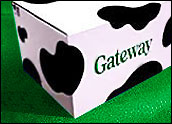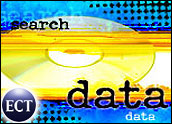
Search giant Google has updated its desktop search software, announcing some new features in its Google Desktop 2.0, while also addressing privacy and security issues that caused criticism of the earlier version of the desktop computer search application.
Google said the software was available in beta, and represents its latest effort to make searching for documents, e-mails and other files on a PC similar to searches of the Internet.
Industry analysts — some of whom were critical of the original Google Desktop’s “lost data” feature and potential for privacy breaches — said the latest version is both a natural extension and a significant improvement for Google’s search. However, there is also likely to be a lot of similar software developments as other players — Copernic, Microsoft and Yahoo among them — have seen the power of Internet search and are fiercely competing on the desktop front.
“It’s hard to say what will be next, but I have no doubt there will be other companies that have showstoppers,” Basex CEO and Chief Analyst Jonathan Spira told the E-Commerce Times.
Sidebar of Internet Self
Perhaps the most significant new feature of the Google desktop search software is the addition of the Sidebar, a desktop panel for “one-glance access to all sorts of personalized information” that includes e-mail, news, weather, photos, RSS Web feeds and frequently-visited Internet sites, in a “Quick View” format.
Google, which indicated its new desktop search would also improve and organize Internet searches, said the Sidebar tool is personalized automatically. While not requiring manual configuration, the feature still allows customization.
“It makes searching your computer as easy as searching the Web with Google,” the company said on its site.
Industry analyst Spira said while the challenge of managing all of the information most workers are exposed to is great, Google has taken a “major step in the right direction” with its updated version, adding that the company is raising the bar on desktop search.
“In terms of organizing information, Google is making itself more of a knowledge worker portal by conflating e-mail, news and RSS feeds all in one environment,” he said. “The ability to present what the knowledge worker needs in one environment is a key to productivity.”
While it is still a very nascent market, Spira said desktop search was moving “from nice-to-have to a necessity,” similar to Web browsers a decade ago.
Managing Mess of Knowledge
Spira said the biggest driver of desktop search, particularly in the enterprise setting, is the continued barrage of information, which comes not only from e-mail and the Internet, but also from RSS feeds, Web logs and other sources.
“Because of the sloppy way that people inherently work, and because it’s very hard to organize information — I think the nature of how people work in the information age and as a knowledge worker is inherently messy,” he said. “We have to have better tools that help us navigate the mess.”
Maurene Caplan Grey, founder and principal analyst with Grey Consulting, told TechNewsWorld that as a mostly consumer-focused company, the latest Desktop Search from Google represents a “radical change,” as the company is now going after the business user.
Google Goes to Work
“They’re trying to get into the enterprise market,” she said, noting how Google Desktop 2 is akin to MyYahoo. “That’s why they have the developer SDKs,” she added, referring to development tools for integrating Desktop 2 with corporate applications.
Grey, who was among industry analysts critical of the privacy policies and enterprise security implications of the first beta of Google Desktop, said the company had made changes to address the issues in the latest version.
“They are trying to take privacy issues very seriously, or at least their privacy policy says so,” Grey said.























































Social Media
See all Social Media